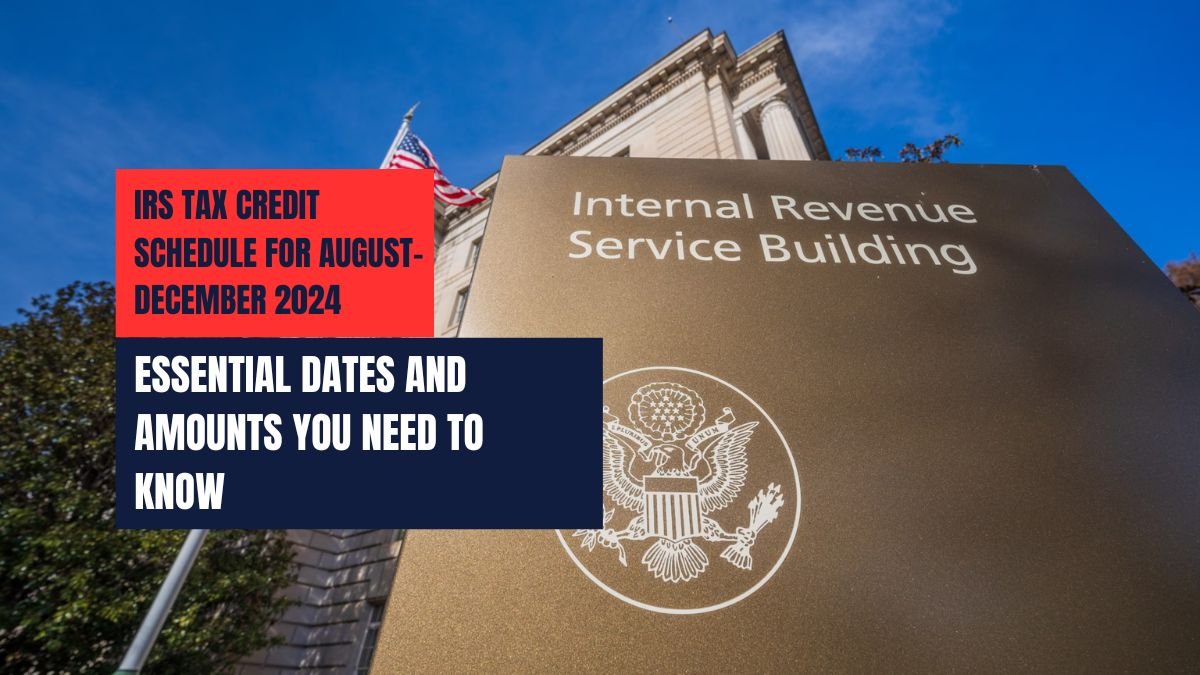Understanding the IRS tax credit schedule is crucial for managing your taxes effectively. Knowing the important dates and amounts can help you avoid penalties and make the most of your tax credits. This guide provides a comprehensive look at the IRS tax credit schedule for the second half of 2024, detailing payment dates, credit amounts, and eligibility criteria.
Quarter Breakdown
The IRS divides the tax year into four quarters. Here’s how they break down:
| Quarter | Dates | Focus |
|---|---|---|
| First | January – March | Early tax filings and initial payments |
| Second | April – June | Important tax deadlines, especially for businesses |
| Third | July – September | Mid-year deadlines and estimated tax payments |
| Fourth | October – December | Final filings and payments |
Key Payment Dates
For the latter half of 2024, keep these important dates in mind:
| Date | Description |
|---|---|
| July 17, 2024 | Extended due date for 2023 Domestic Trust, Estate, and Partnership Tax Returns |
| September 16, 2024 | Deadline for the third estimated tax payment for 2024 |
| October 15, 2024 | Extended deadline for filing the 2023 income tax return |
| January 15, 2025 | Deadline for the fourth estimated tax payment for 2024 |
Meeting these deadlines helps you avoid penalties and ensure you receive any available tax credits.
Tax Credit Amounts
Here’s a summary of key tax credits and deductions:
| Type | Amount/Limit |
|---|---|
| General Deduction | Up to $1.22 million, with certain expenses capped at $3.02 million |
| Property Services | Deduction limits up to $1.29 million, with expenses capped at $3.22 million |
| Capital Losses | Reduces taxable income by offsetting investment gains |
| Alimony Payments | Deductions for certain payments under specific conditions |
| Disaster Losses | Special deductions for federally declared disasters |
| Business Expenses | Deductions for operating costs to reduce taxable income |
These credits and deductions can help reduce your tax liability significantly.
Eligibility Criteria
To qualify for IRS tax credits, you must meet these requirements:
| Criteria | Requirement |
|---|---|
| Citizenship | Must be a U.S. citizen or resident alien |
| Income | Annual income must be within IRS limits |
| Filing Status | Includes single, married, divorced, or unemployed individuals |
| Residency | Must reside in the U.S. for the tax year in question |
Eligibility criteria can change, so stay updated by checking the IRS website.
Maximizing Tax Credits
Here are tips to help you maximize your tax credits:
| Tip | Description |
|---|---|
| File Early | Submit tax returns as soon as possible to expedite refunds |
| Keep Information Updated | Ensure personal and bank details are accurate to avoid delays |
| Consult a Tax Advisor | Professional advice can optimize claims and minimize liabilities |
Maximizing your tax credits can lead to significant savings and improve your financial stability.
Conclusion
Being aware of the IRS tax credit schedule and key payment dates is essential for effective tax management. By following deadlines and understanding your eligibility, you can take full advantage of tax credits and avoid penalties. Staying informed and seeking professional advice will help you optimize your tax situation and ensure financial benefits.
FAQ’s
When are the third and fourth estimated tax payments due in 2024?
The third estimated tax payment is due on September 16, 2024, and the fourth payment is due on January 15, 2025.
How much can I deduct for general expenses in 2024?
You can deduct up to $1.22 million for general expenses, with certain expenses capped at $3.02 million.
Who is eligible for IRS tax credits?
U.S. citizens or resident aliens with income within IRS guidelines are eligible for tax credits.





